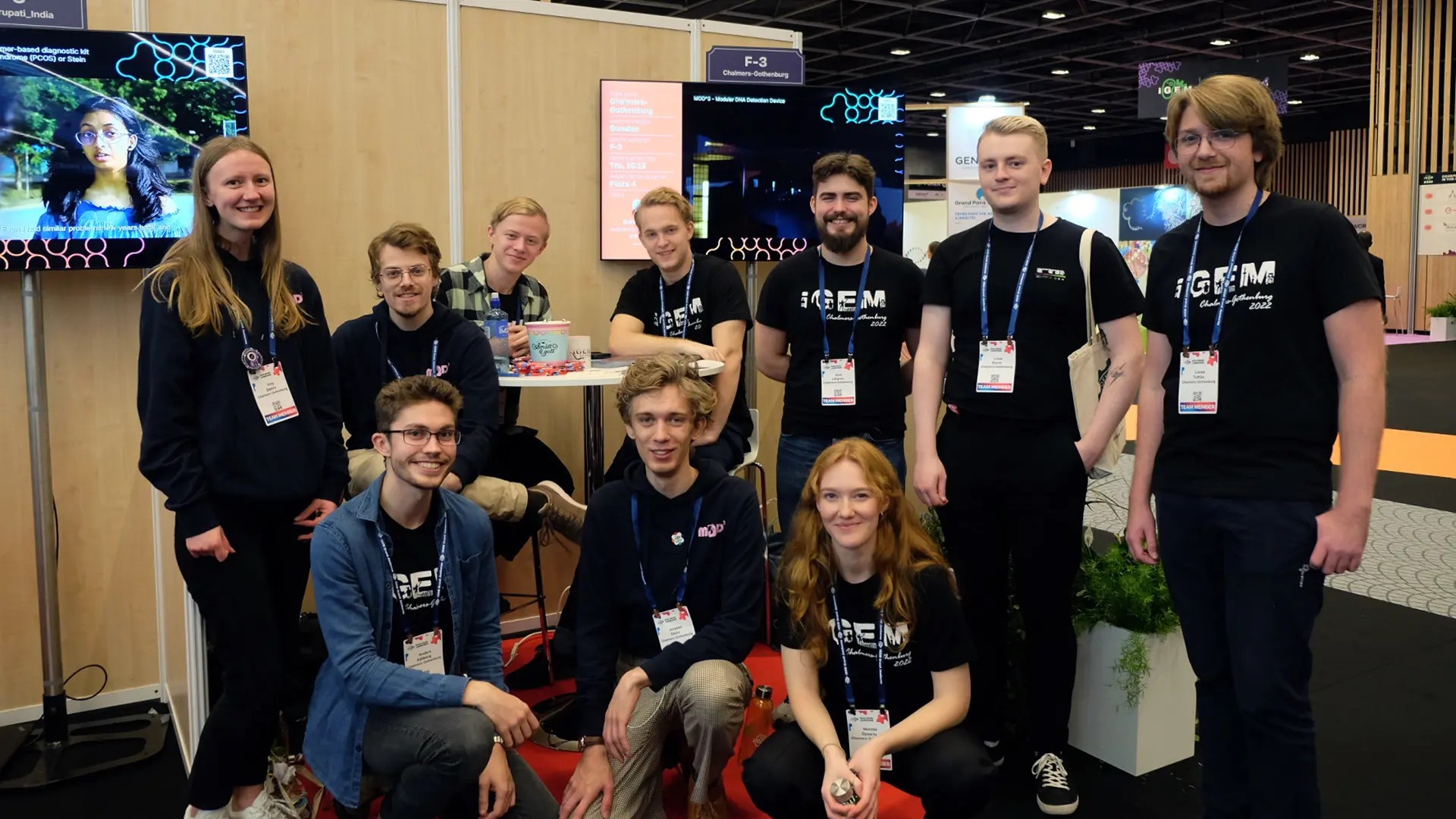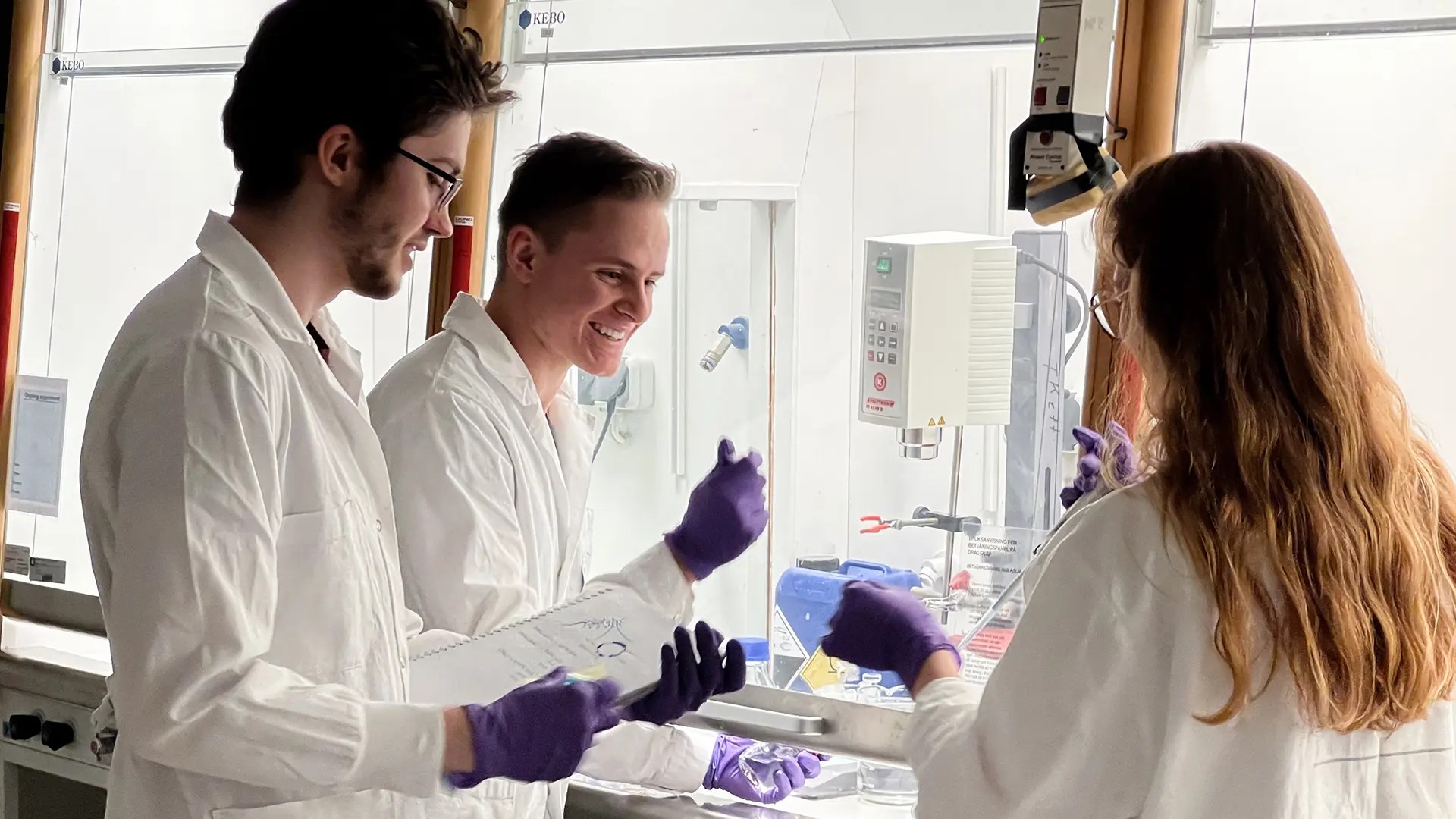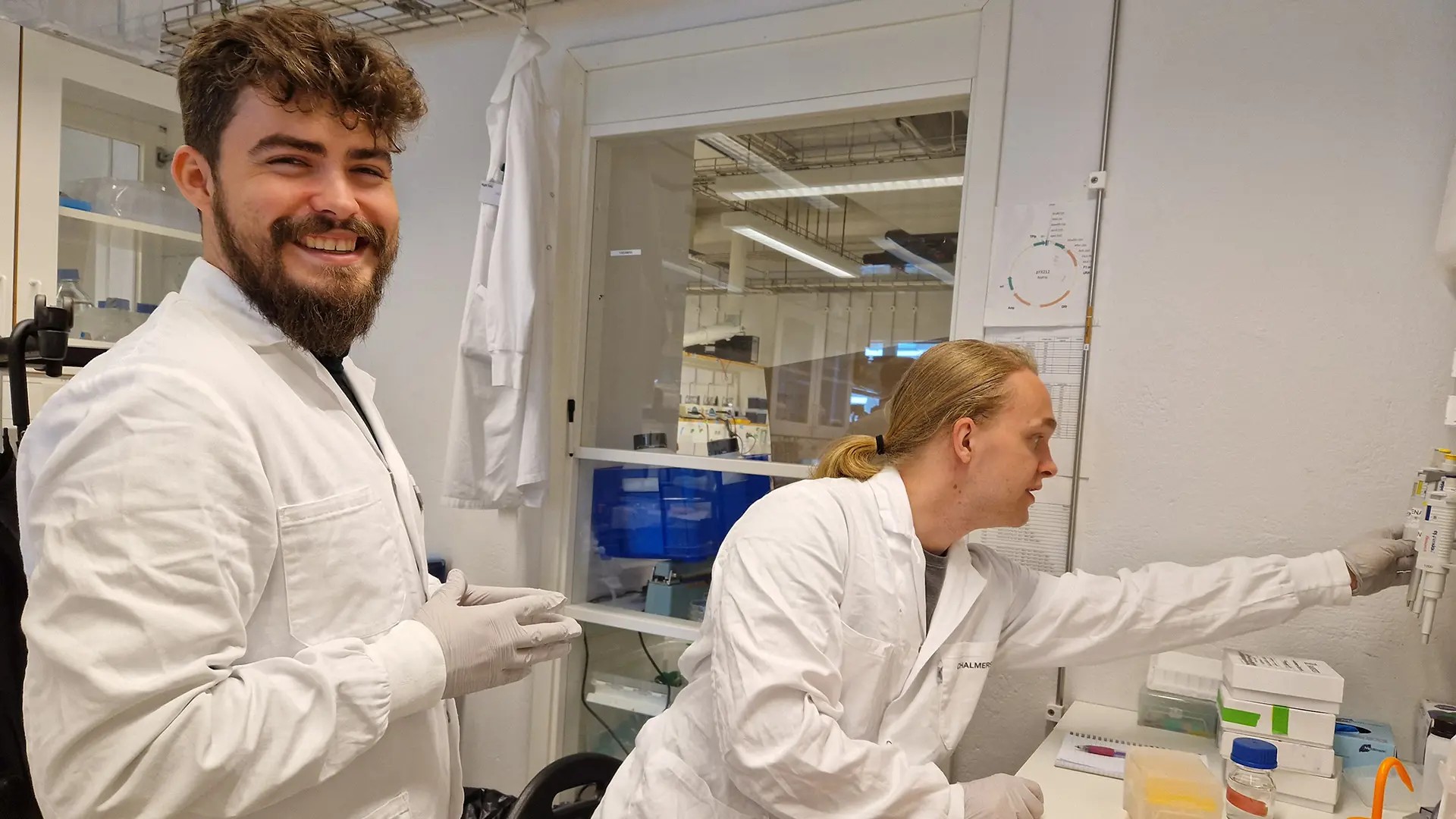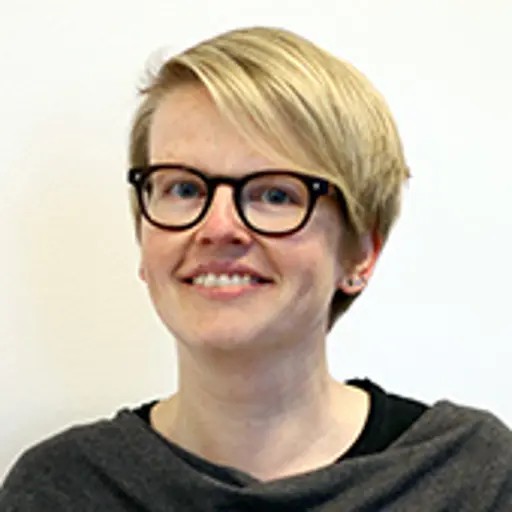


At the beginning of every year, Chalmers puts together a team for iGEM, a global scientific competition in synthetic biology. The students are working in multidisciplinary teams to design, build, test and measure a system of their own design. Participating in iGEM also presents the students to an arena where they can meet relevant actors in biotechnology, while getting course credits.
In the international competition iGEM, students work in multidisciplinary teams to design and test a scientific thesis which is tackling an everyday issue facing the world. The project is presented on a project website and during a three-day event in the fall. All competing teams meet to present their work, listen to lectures, mingle with the other teams and visit an exhibition of companies from the biotechnology sector.
“In addition to practise my theoretical knowledge and trying out what it's really like to work with a long-term laboratory project, iGEM also gave me greater insight into the biotech companies’ demand for our skills. The sponsors at the exhibition were genuinely interested in us and opened my eyes to many opportunities after I finish my studies,” says Emil Löfgren, final year student in biotechnology, who participated in Chalmers' iGEM team 2022.
Focus on quick detection of snail fever
The Chalmers team began their journey in January 2022, when the planning of the project started. The practical part of the project is carried out as a laboratory course in ten weeks in the summer in the premises of the Division of Systems and Synthetic Biology.
The students decided on a project in diagnostics, where the focus was on developing a quick way to detect the disease snail fever. Parasites, Schistosoma worms, can invade the skin and mucous membranes of humans. More than 200 million people worldwide are estimated to be infected. As the adult worms develop, they lay eggs that are spread through the blood to various organs. Infection causes mild symptoms at first, but as the fully developed worms lay eggs in body tissues, they can cause great damage. Diagnosis is made by antibody analysis but must be supplemented by analysis of faeces or urine.
“The diagnostic methods can only be performed after many weeks of infection and require trained staff and specialized equipment. We wanted to set up a method for fast and simple detection. We wanted to base our method on the free DNA found in the blood, saliva and faeces of infected people, which is found after only a few days infection,” says Emil Löfgren.
Nominated for best software
The team worked on two approaches for rapid detection of parasite DNA: One based on yeast cells and one was a cell-free diagnostic method. Using both approaches, a protein "captures" specific sequences from the parasites' DNA and sends a colour signal that can be detected without a microscope.
“We developed a model to estimate the probability for two proteins to interact if they are bound with linker sequences to fixed positions. The model can provide an insight to how to best design the proteins if you want them to interact more – or less,” says Emil Löfgren.
The team was nominated in the "best software" category, where only four of the approximately 350 teams were selected, for this model.
“We are extremely proud, even if we didn't win in the end, given the large selection of participating teams”, says Emil Löfgren.
Varied work benefits from multidisciplinary competence
The iGEM course at Chalmers is a master’s course, but it is open to all students and the teams are usually a mix of students from both Chalmers and the University of Gothenburg.
Being part of the iGEM-team is exhausting, according to Emil Löfgren, but he stresses that is most of all rewarding, fun and varied, with the opportunity to take part of various tasks. In addition, a certain element of sales is included - as the students also must find sponsors in order to finance their participation.
“I really recommend people from many different master's programmes, not just biotechnology, to sign up. The project benefits from having multidisciplinary competence in the team - and you have a greater chance of success. The nomination for best software depended on us having a team member from Data science and AI who collaborated to develop the model with two of our students with a biological background – adding competence from different research fields makes a very big difference to the relevance of the projects,” says Emil Löfgren.
More about iGEM
Contact
- Assistant Head of Department, Life Sciences
